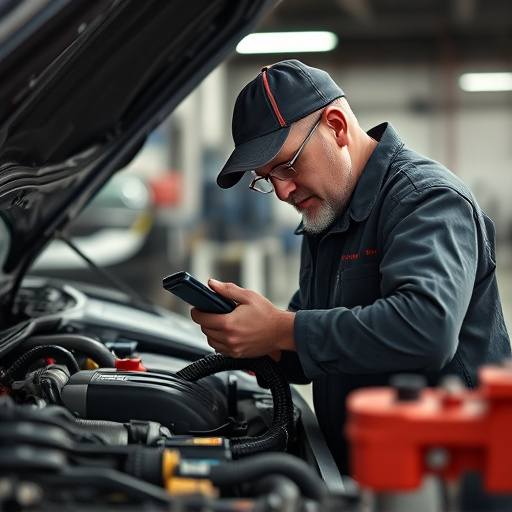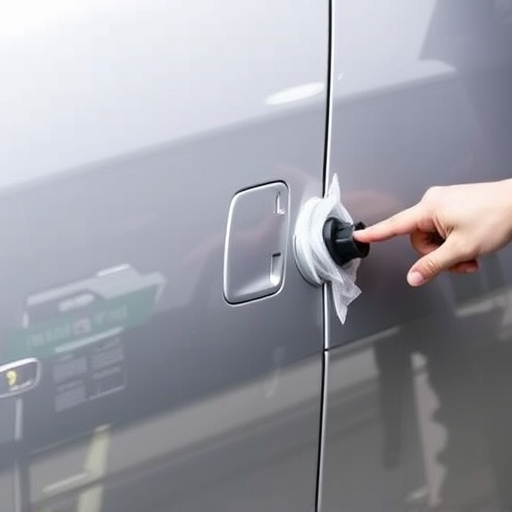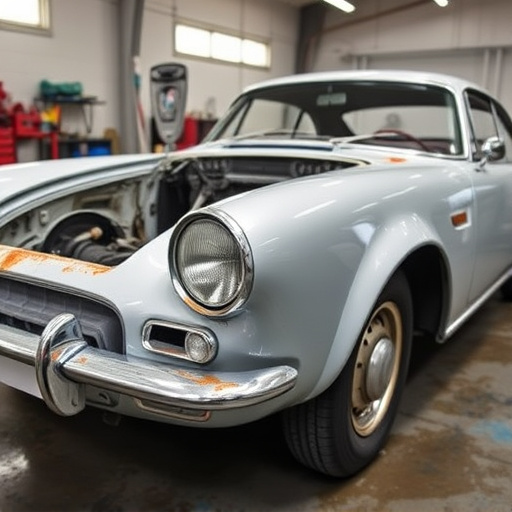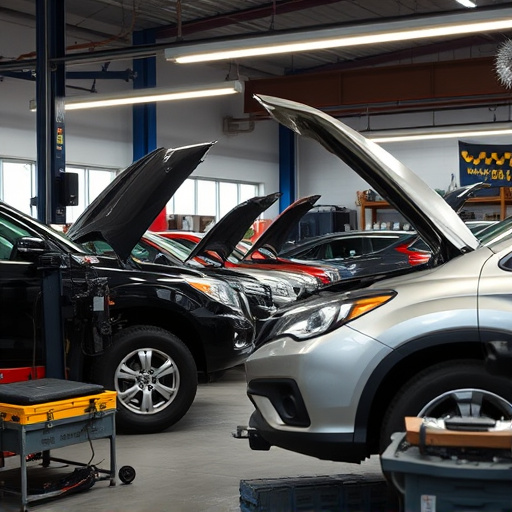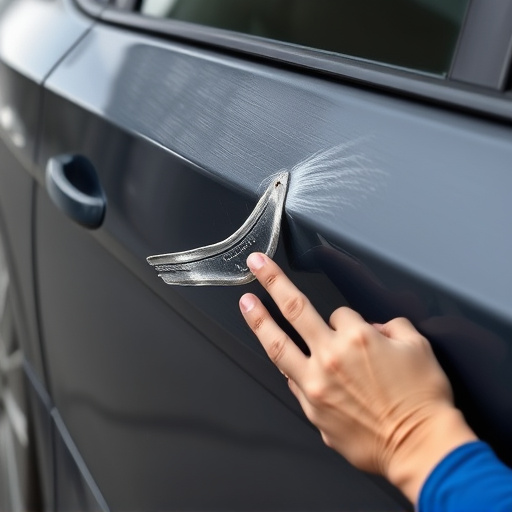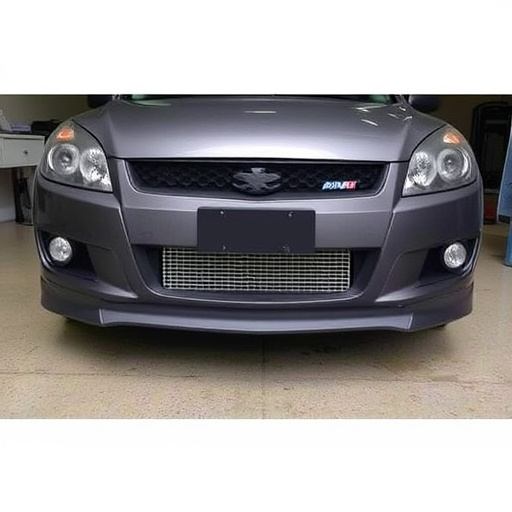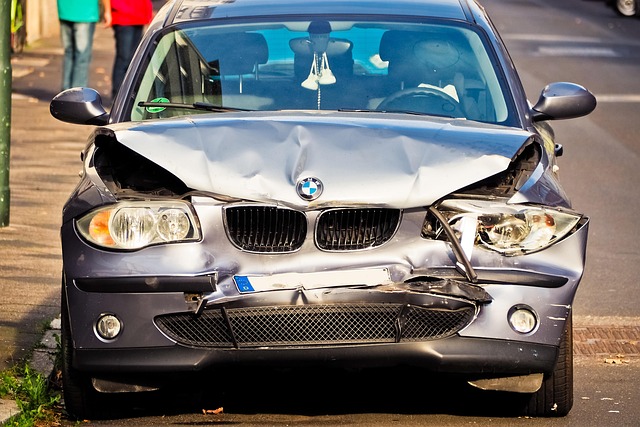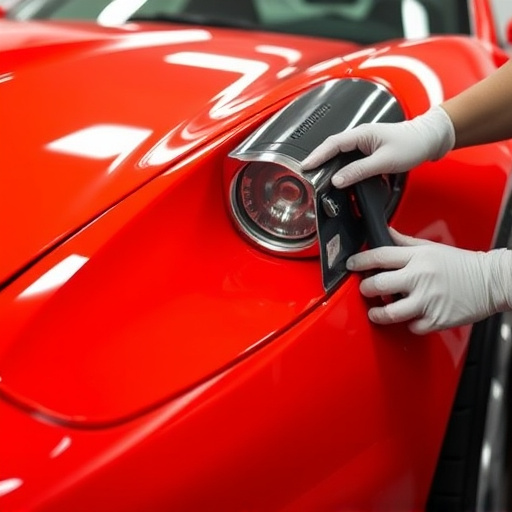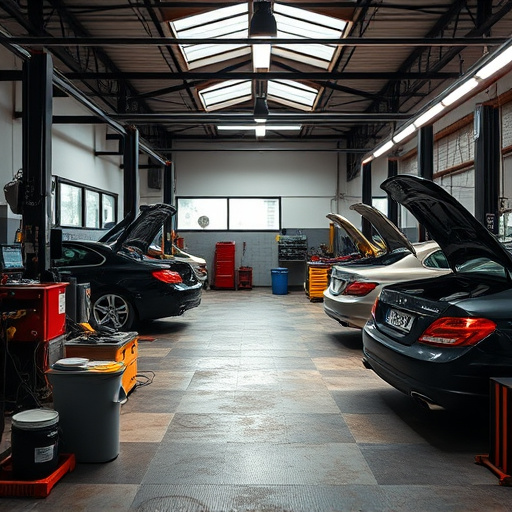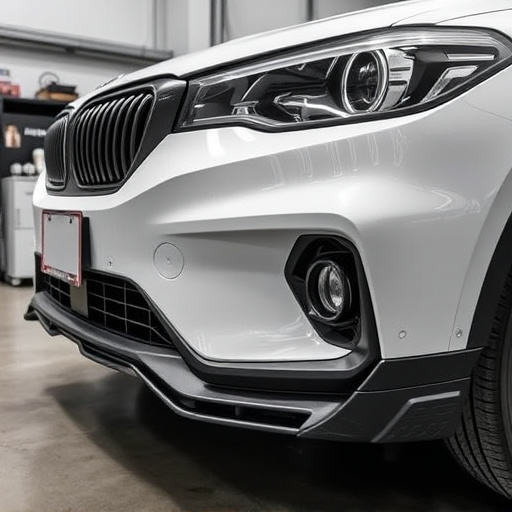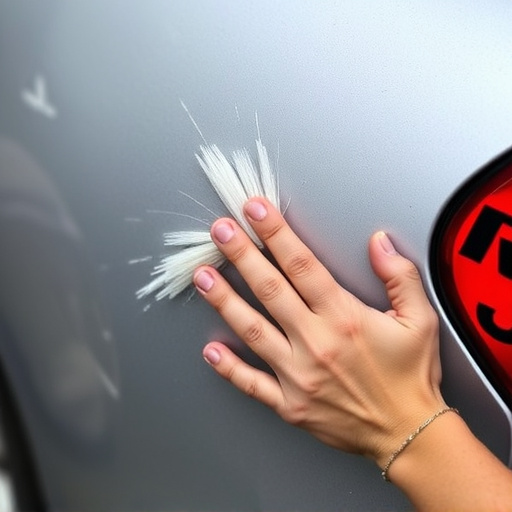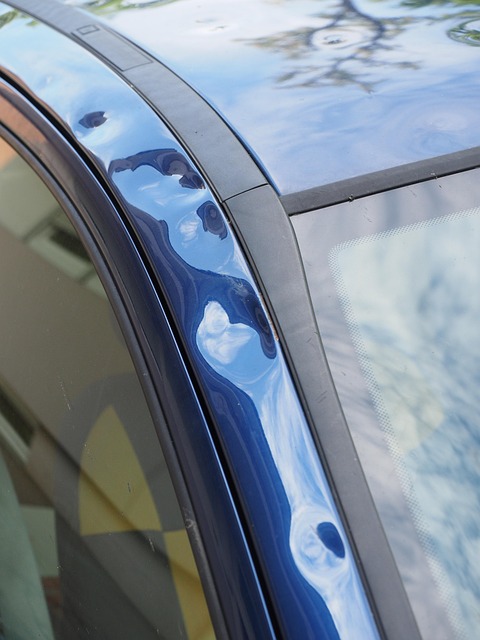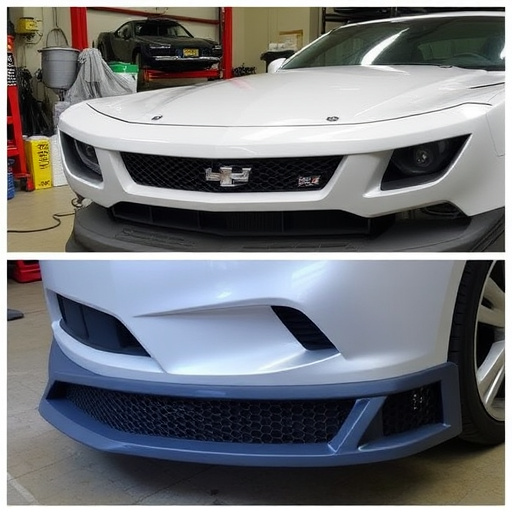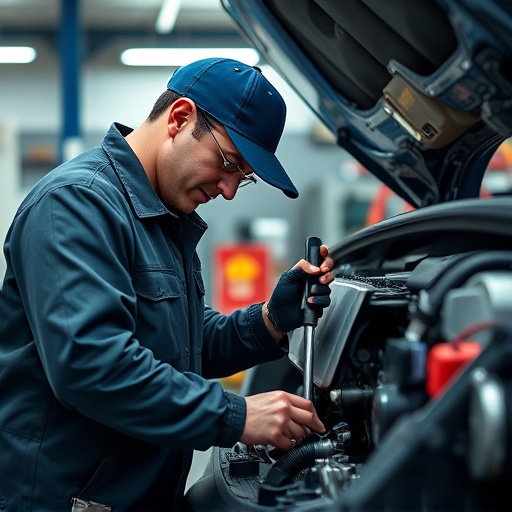The growing popularity of hybrid vehicles has spurred a significant transformation in the automotive industry, focusing on safety and sustainability standards. Hybrid vehicle collision repair services have emerged as a specialized field demanding advanced training for auto body shops. This evolution has led to innovative technologies, eco-friendly materials, and precision tools, setting new benchmarks for overall automotive safety and environmental responsibility. Modern car paint repair techniques are more sophisticated, ensuring structural integrity and aesthetic appeal while navigating hybrid vehicle technology, enhancing customer satisfaction. Specialized tools and techniques have been developed to address unique challenges posed by complex electrical systems, hydrogen fuel cells, and lightweight composite materials. Continuous professional development is crucial as auto shops implement comprehensive training programs to meet the technological complexities of hybrid vehicles.
Hybrid vehicle collision repair has reshaped the auto industry, driving evolution in safety standards and sustainability practices. As these vehicles become more prevalent, specialized tools and techniques have emerged to address their unique needs. This shift has profound implications for shop operations, requiring enhanced training programs to accommodate advanced repair methods. By embracing these changes, the industry ensures not only effective repairs but also contributes to a greener future.
- Evolving Standards for Safety and Sustainability
- Specialized Tools and Techniques Emerge
- Impact on Shop Operations and Training Requirements
Evolving Standards for Safety and Sustainability
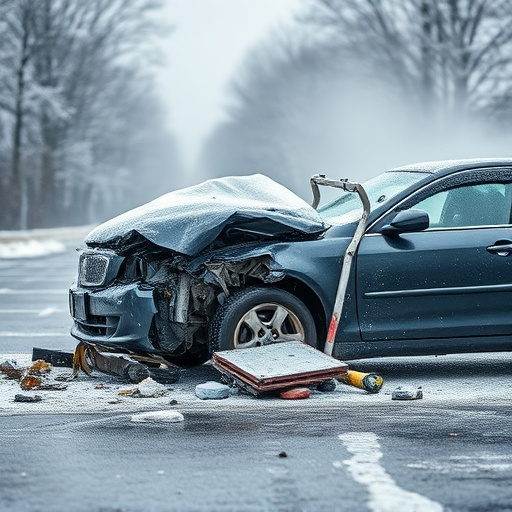
The rise of hybrid vehicle collision repair has significantly shifted the automotive industry’s focus towards evolving standards for safety and sustainability. As hybrid vehicles become more prevalent on the roads, the demand for specialized autobody repairs that cater to their unique needs has grown. This shift has prompted auto body shop services to adapt and invest in advanced training programs to handle these complex repairs effectively. The use of innovative technologies, such as precision tools and eco-friendly materials, has also become the norm, reflecting a broader industry movement towards sustainability.
Consequently, hybrid vehicle collision repair sets new benchmarks for overall automotive safety and environmental responsibility. Car paint repair techniques have seen advancements to accommodate the specialized materials used in hybrid vehicles, ensuring that repairs are not only structurally sound but also maintain the aesthetic integrity of these advanced vehicles. This evolution has not only improved customer satisfaction but also pushed body shop services to become more adept at navigating the intricate landscape of modern automotive technology.
Specialized Tools and Techniques Emerge
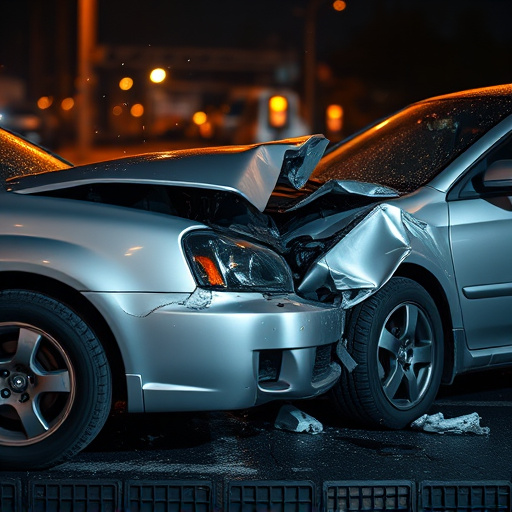
As hybrid vehicle collision repair gained prominence, the automotive industry witnessed a surge in specialized tools and techniques. Traditional car body shops had to adapt and evolve to accommodate the unique challenges posed by repairing these advanced vehicles. Hybrid vehicles, with their complex electrical systems and lightweight materials, demanded precise and specialized automotive body work. This evolution led to the development of innovative tools for dent repair and more sophisticated equipment to handle intricate structural adjustments.
The need for expert technicians skilled in hybrid vehicle collision repair became paramount. Specialized training programs were introduced to equip professionals with the knowledge required to navigate these complex repairs effectively. These advancements not only improved the quality of car body shop services but also enhanced safety standards, ensuring that hybrid vehicles returned to the road in top condition, reflecting the industry’s commitment to providing excellent and specialized automotive body work.
Impact on Shop Operations and Training Requirements
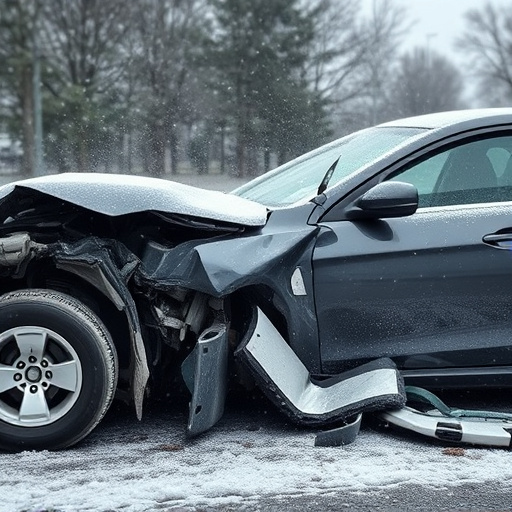
The rise of hybrid vehicle collision repair has significantly transformed the way automotive body shops operate. As hybrid vehicles become more prevalent on the road, shops are forced to adapt their facilities and processes to accommodate unique repair needs. This shift demands specialized equipment and training for technicians, who must now master the intricacies of repairing advanced electrical systems, high-pressure hydrogen fuel cells, and lightweight composite materials. The result is a higher bar for quality and safety standards within the industry.
Furthermore, the complexity of hybrid vehicle collision repair has led to an increased emphasis on continuous training and education. Auto shops are now required to offer comprehensive training programs that go beyond traditional car dent repair or fleet repair services. They must prepare their staff to handle not only the physical damage but also the technological advancements that come with repairing these sophisticated vehicles, ensuring that every technician is equipped to provide top-tier service for this evolving market segment.
Hybrid vehicle collision repair has fundamentally reshaped the auto industry, driving advancements in both safety and sustainability. Specialized tools and techniques developed for these complex repairs have elevated the standards across the board, while the evolving nature of these standards continues to push shops towards innovation. As hybrid vehicles become more prevalent, understanding and mastering hybrid collision repair will be crucial for auto shop operations and technician training, ensuring they remain competitive and equipped to service the future of transportation.
